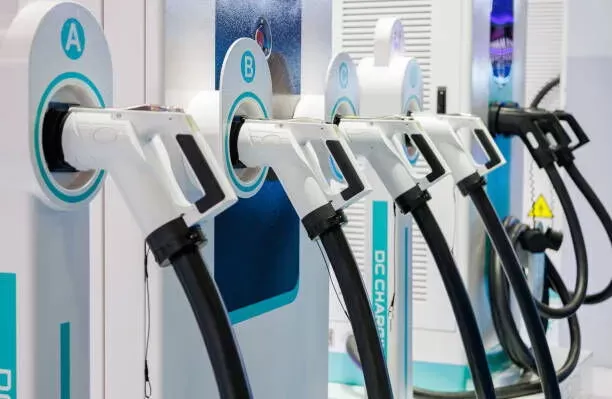Notifications

7 minutes, 17 seconds
-66 Views 0 Comments 0 Likes 0 Reviews

As electric vehicles (EVs) continue to grow in popularity, more homeowners are installing China EV chargers to conveniently power their cars at home. One of the most important technical specs to understand when choosing a charger is amperage, often simply called "amps." This number directly affects how quickly your EV charges and whether the charger is compatible with your home’s electrical system.
In this article, we’ll explore what amperage means, how it impacts EV charging, and what factors you should consider when selecting an EV charger for your home.
"Amps" (amperes) measure electrical current — essentially, how much electricity flows through a wire or circuit at any given moment. When it comes to EV chargers, amperage indicates how much current the charger delivers to your vehicle’s battery.
Think of it like water flowing through a hose: amps represent the volume of water flowing, while voltage is the pressure pushing that water. Higher amperage means more electricity flows, allowing your EV to charge faster — assuming your vehicle and home system can handle it.
Your vehicle’s onboard charger controls the maximum current it can accept. Amperage affects:
Charging Speed: More amps typically mean faster charging (within your EV’s acceptance limits).
Energy Efficiency: Using the correct amperage helps prevent charger overheating and system stress.
Compatibility: Not all EVs or home electrical systems support high-amp chargers; choosing the right amperage ensures safety and reliability.
Most modern EVs accept between 32 and 50 amps, with some high-performance models supporting up to 80 amps. The actual amperage used depends on both your EV’s capability and the charger’s output.
Voltage: 120 volts (standard household outlet)
Amperage: Usually 12 to 16 amps
Charging Speed: About 3–5 miles of range per hour
Level 1 chargers plug into a regular outlet and are the simplest option, but they’re very slow, often taking over 24 hours to fully charge a depleted battery. These chargers are best suited for plug-in hybrids or drivers with minimal daily driving needs.
Voltage: 240 volts (like dryers or ovens)
Amperage: Typically 16 to 80 amps
Charging Speed: Approximately 15–75 miles of range per hour
Level 2 chargers are the most popular residential choice due to their faster speeds. Most home Level 2 chargers provide 30 to 50 amps, which can fully charge an EV overnight.
Check your EV’s maximum onboard charger rating. For example, if your vehicle accepts up to 40 amps, an 80-amp charger won’t speed up charging and may cost more unnecessarily.
Consider how many miles you drive daily. If you drive under 50 miles, a 32-amp charger might suffice. For long-range EVs or multiple trips daily, a higher-amp charger may be beneficial.
High-amp chargers require more power and can overload older electrical systems. Before installing a charger above 40 amps, have a licensed electrician inspect your panel to confirm it can handle the load.
Electrical Panel Capacity: Ensure your main panel can support the added load with a dedicated 240V circuit and enough available amperage.
Dedicated Circuit Breaker: Chargers need their own circuit breaker. For instance, a 50-amp charger usually requires a 60-amp breaker, per National Electrical Code (NEC) standards.
Professional Installation: Always hire a licensed electrician to guarantee:
Compliance with local codes
Proper grounding and protection
Safe operation
Warranty validity
Permits and Inspections: Some areas require permits and inspections—check local regulations to avoid fines or insurance issues.
High-quality chargers include safety technologies such as:
Overload protection
Ground fault detection
Temperature monitoring (to prevent overheating)
Surge protection
Even if your current EV accepts only 32 amps, installing a 50 or 60-amp charger can be a smart investment. Future EVs may support faster charging at higher amperage. If your electrical system can support it, installing a higher-capacity charger now can save money and hassle later. You can always set it to charge at a lower current and increase it later as needed.
| Amperage | Miles of Range per Hour | Typical Full Charge Time* |
|---|---|---|
| 16 amps | ~10–12 miles | 20–30 hours |
| 32 amps | ~25 miles | 8–12 hours |
| 40 amps | ~30 miles | 6–10 hours |
| 48 amps | ~35 miles | 5–9 hours |
| 80 amps | ~60–75 miles | 2–4 hours |
*Charging times vary based on battery capacity and vehicle efficiency.
Understanding amperage is key to selecting the right home EV charger. While higher amps generally mean faster charging, the best choice depends on your vehicle’s capability, driving habits, and your home’s electrical system.
Whether you opt for a 32-amp charger for daily use or invest in an 80-amp station for future-proofing, safety and professional installation should always be top priorities.
Smart homeowners will consider both current needs and future demands—choosing chargers that are fast, safe, and built to last as EV technology evolves.Know more about Google SEO Directory
China EV Chargers EV Charger Manufacturer EV Charging Solutions

